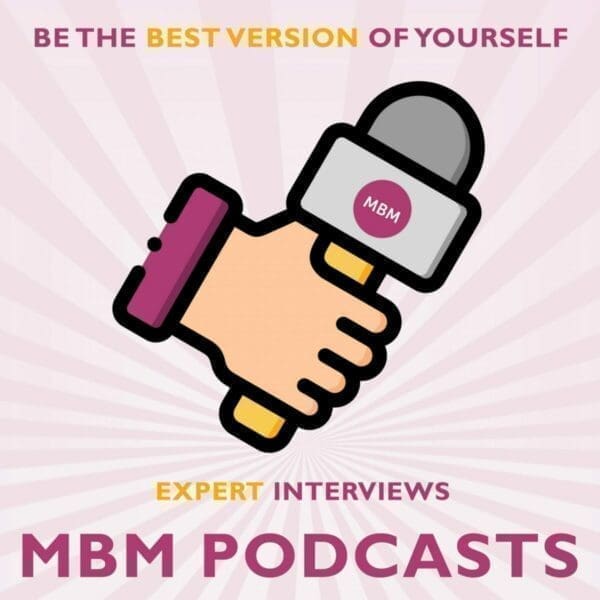Podcast: Play in new window | Download
E2 – Putting Off the Important Stuff? Identify the Important Stuff & Get it Done
Stop putting things off. Get beyond being just busy and be able to make the deep impact on your results that you want.
You are doing shallow work only. Working as a knowledge worker in the corporate world can be tough. The danger is that you are busy. Busy doing the shallow work. The work that doesn’t make a big difference. This Podcast will help you learn how to identify important tasks. And know how to get them done. More importantly, it will help you to stop putting things off.
Read the Putting Things Off Podcast Transcript Below:
“I bet you’re busy, really, really busy. Well, busy nowadays equal to sjob. No one has a job where they’ve got a few hours spare to yeah, let’s have a look at that new thing.”
“My name is Darren Smith and you’re here at Sticky and Short Stories, the home of Sticky Learning, MBM, trainers to the UK grocery industry.”
My Commute
“I worked in corporate for about 15 years and commuted every day, four hours a day to London, two hours there, two hours back. Often, when I walked into my office and there were another 20 emails which I barely touched and yet another email from marketing with 15 attachments to get done within 48 hours. Of course, I hadn’t read the last lot, plus voicemails, plus back-to-back meetings. I could not get my head above water.”
“I was stressed, overwhelmed and it felt like the email monster was just growing.”
Putting Things Off, Procrastination
“Now having left, and run time management courses for 15 years, I had to learn and I learned the hard way. I learned what works and what doesn’t work. The time management gurus call it procrastination. We call it putting stuff off, putting off the big stuff.”
“So you have one of those days where you come in, let’s say eight o’clock. I’ll just have a quick check of my emails and you do. An hour later, a cup of coffee you’ve had, maybe a chat with a few other people that have come in and you’re off to your first meeting around half past nine, 10:00 o’clock. That meeting overruns. You come out of there about quarter past 11. A quick check of your emails, a quick catch up with Bob down the corridor and all of a sudden it’s time for a sandwich at your desk whilst you read a couple of reports, and maybe catch up with one of your team.”

The Busyness Continues
“And then you’re coming out of lunch, you’re into the two o’clock meetings. They’re overrun and you must get some of this important stuff done. That’s what’s in the back of your mind, but you never do because you’re running from meeting to meeting or email to email.”
“So you do the quality work at the end of the day when everyone’s gone home and at that time when you’re at your most tired and you have the least energy is when you start to do that work that makes the real difference.”
Brian Tracy
“Brian Tracy, the time management guru from the States wrote a fabulous book called Eat That Frog. The basic premise is that if you can identify the biggest and horrible thing, the frog and get that done first, then the rest of your day will be easier because you’ve got the worst thing out of the way.”
“Now, I never did this in 15 years in corporate, but I wish I had. Because what we’re trying to achieve is we’re trying to get the things done that make the biggest impact. Now that sounds easy.”
Why Are You on the Payroll?
“When I coach a lot of people, I ask them, why are you on the payroll? And they write very proudly a very long list of why they’re on the payroll. They’re there to manage people, lead people, run meetings, organize projects, manage projects, deal with customers and so on and so on, and they are all very true. I’m certainly not taking those things away.”
“What I am saying and my challenge back to them once they’ve finished their list, is if they work in a commercial organization, one that makes money, then they are there to make money. And the more connected, and the more steel chain link there is between the reason you are on the payroll to make 500,000 a million, whatever it is and the task that you do every day, the more successful you will be.”
Deep Work
“Cal Newport wrote a book called Deep Work, fabulous book and what it essentially says is that if you work on the deep impact task, you’ll make a bigger difference. Now, we didn’t need a book to know that, but he brings up a lot of research and a lot of examples which further push forward the thought that Pareto was right. 20% of the task will deliver 80% of the difference in your job. The trick is knowing what the 20% are and doing them when you have quality time.”
“So here’s the practical tip. When you start your day, write a list of all the stuff you’ve got to get done that day. Don’t be over-enthusiastic and write five days worth. Yes, I know you’ve got a lot. Put that on a separate piece of paper. This is just the stuff you’ve got to get done today. Then identify the biggest horrible thing that you need to do and put a star by it, a circle around it, highlight it, whatever you need to do and do it first. Don’t put it off.”
“Now here’s the other practical tip that will help you get started. The best way to eat an elephant, one bite at a time. Or as Alan Lakein put it, who was the grandfather of time management back in the sixties. He described it as a Swiss piece of cheese. You just need to poke one hole in it.”
Breaking Things Down
“So, someone, I was coaching a while back, they were talking about them trying to move house forever. They hadn’t. It was a big job and they’d written on their list, move house. Now that’s got a lot of tasks within it.”
“The very first thing they decided to write after some coaching was phone the estate agent. They phoned me the next day and said, do you know, I did that. And then what happened was the snowball started to run, started to go down the hill and gather speed because they’d done the first task. They poked the hole in the Swiss cheese and found that the next task was easier and the next task was easier after that.”
Simple, Practical Tasks
“So for your biggest horrible thing that you need to do, write a simple practical task, and it might even be open email x and read it. Just write that down and it will start. Don’t find every reason you can not do it.”
“What your brain does when it’s got something horrible to do, there’s almost this radar on the top of your head that says, someone, talk to me, anyone distracts me. This is horrible, and then all of a sudden you start talking to Bob down the corridor.”
“But actually you’ve got to get on and do this task. You’ve got to blank out everything around you, and you’ve certainly not got to look at other people to talk to you, distract you away from this task because yes, you’ll describe yourself as busy. It’s easy to be busy. It’s much harder to be busy on the stuff that makes the difference.”
Final Thoughts to Help You Stop Putting Things off
“So in summary. One, identify the horrible thing you’ve got to get done today. Two, write on your to-do list the first practical step to start it. And three, be aware that as soon as you want to start getting this thing done, your brain will go off and look for distractions. Don’t let it. Good luck.”
For further tips and information, you can take a look at our Ultimate Guide to Time Management Skills and our Time Management Skills YouTube Channel. Also, take a look at our award-winning blog where you can read our review of ‘Deep Work’ by Cal Newport.
We are delighted to announce that our Podcast: Personal Development Tips told through Short and Sticky Stories was selected as one of the Top 10 Negotiation Podcasts on the web by Feedspot.



